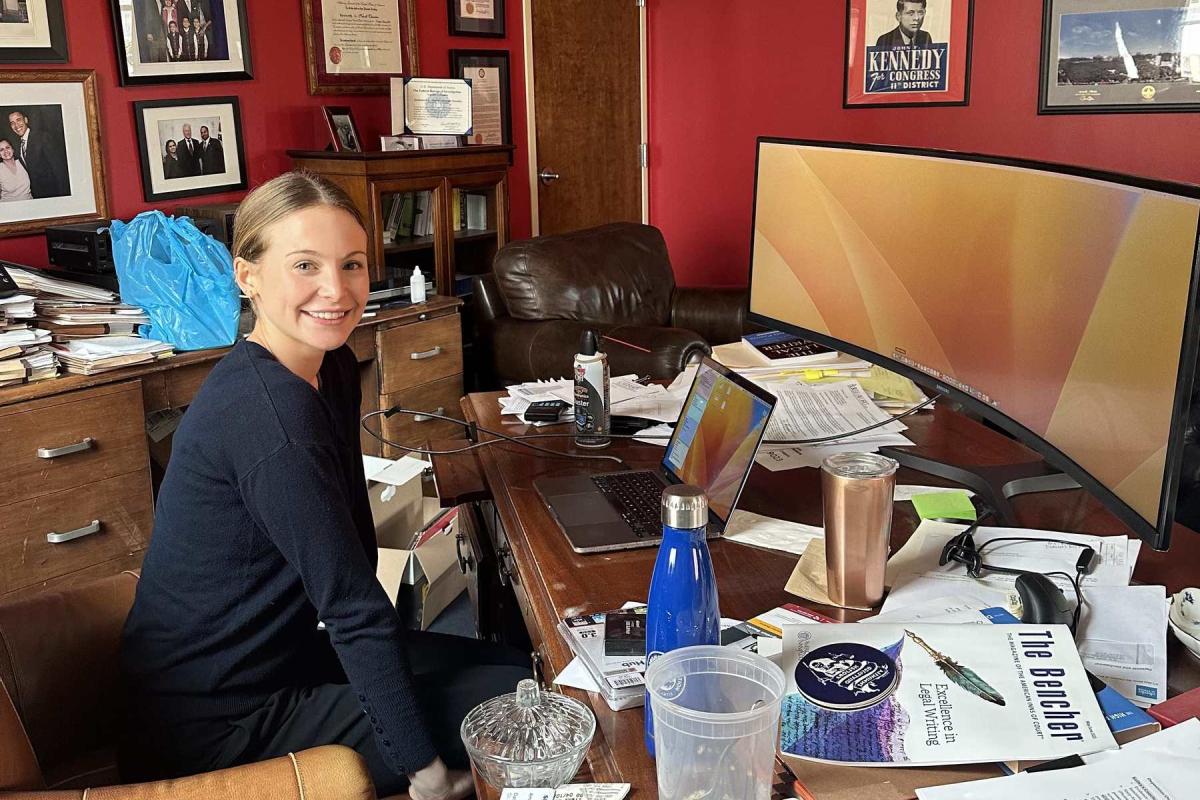A Dramatic Discovery
Manon Theodoly had been combing through evidence for hours when it hit her: something was missing. Something big.
Theodoly, a fourth-year double major in Human Rights and English Literature, spent last summer interning at the Chandra Law Firm, a practice that brings civil rights cases in Cleveland, Ohio. Her work there was supported by a flexible Pozen Center internship grant of $5,000. The practice is currently suing a jail, alleging excessive use of force. One of Theodoly’s responsibilities was requesting, organizing, and analyzing evidence during the pretrial discovery process.
“There’s a day-to-day aspect to human rights work that isn’t very dramatic but is still extremely important, and it was great to learn that I could get really absorbed in that. I wouldn’t have known that otherwise.”
She was focusing on security camera footage from the jail, making sure it was all being used as effectively as possible in the firm’s case, when she noticed that two hours of footage were missing. “Those two hours should have been turned over in discovery,” she says. “That meant they’d been intentionally held back. Or maybe even destroyed.”
Connecting Theory and Practice
For Theodoly, the nitty-gritty of the discovery process was a perfect complement to the Pozen approach to human rights. “I’ve really liked the emphasis on how theory and practice aren’t separate. Each is a way to think about the other. You need both sides. The world is so messy, and turning ideas into reality is hard.” Her favorite Pozen courses had explored this idea; at Chandra, she experienced it firsthand.
When Theodoly transferred to UChicago in the Fall of 2021, she already knew she wanted to major in English literature. That fall, she took a Pozen course on gender and incarceration. “It was a total eye-opener,” she says. Human rights, she realized, gave her a whole new lens for looking at the world, one that resonated with her experience as a British citizen living in America. What rights were different people granted? How did the answer vary from place to place? Why? She even started reading fiction differently, increasingly taking note of how writers handled human rights and human rights violations.
She soon became a human rights minor, then a major. Her thesis will be a cross-department project with English Literature, focusing on how fictional narratives, especially those that focus on women’s experiences, play into human rights discourses.
A Path to the Professional World
After graduation Theodoly plans to attend law school, focusing on either prisoners' rights or employment law. She credits her Pozen internship, just as much as her classes, with giving her skills she’ll take with her on that path. “It was really great to learn that I enjoyed all of the work, not just the exciting discoveries,” she says. Her discovery of the missing jail security footage––which ended up making an important contribution to her firm’s excessive force case ––came only after weeks of painstaking organizational work. “There’s a day-to-day aspect to human rights work that isn’t very dramatic but is still extremely important, and it was great to learn that I could get really absorbed in that. I wouldn’t have known that otherwise.”
- *Learn more about the Human Rights Internship Program.
- Read about becoming a human rights major or minor.

